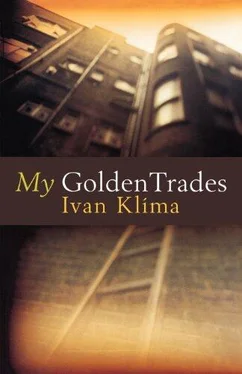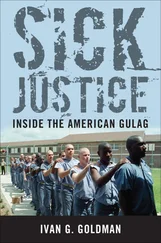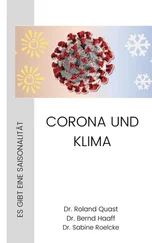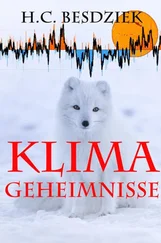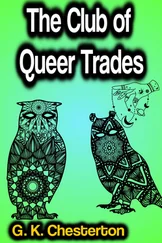Ivan Klima - My Golden Trades
Здесь есть возможность читать онлайн «Ivan Klima - My Golden Trades» весь текст электронной книги совершенно бесплатно (целиком полную версию без сокращений). В некоторых случаях можно слушать аудио, скачать через торрент в формате fb2 и присутствует краткое содержание. Год выпуска: 1998, Издательство: Granta UK, Жанр: Современная проза, на английском языке. Описание произведения, (предисловие) а так же отзывы посетителей доступны на портале библиотеки ЛибКат.
- Название:My Golden Trades
- Автор:
- Издательство:Granta UK
- Жанр:
- Год:1998
- ISBN:нет данных
- Рейтинг книги:4 / 5. Голосов: 1
-
Избранное:Добавить в избранное
- Отзывы:
-
Ваша оценка:
- 80
- 1
- 2
- 3
- 4
- 5
My Golden Trades: краткое содержание, описание и аннотация
Предлагаем к чтению аннотацию, описание, краткое содержание или предисловие (зависит от того, что написал сам автор книги «My Golden Trades»). Если вы не нашли необходимую информацию о книге — напишите в комментариях, мы постараемся отыскать её.
My Golden Trades — читать онлайн бесплатно полную книгу (весь текст) целиком
Ниже представлен текст книги, разбитый по страницам. Система сохранения места последней прочитанной страницы, позволяет с удобством читать онлайн бесплатно книгу «My Golden Trades», без необходимости каждый раз заново искать на чём Вы остановились. Поставьте закладку, и сможете в любой момент перейти на страницу, на которой закончили чтение.
Интервал:
Закладка:
I sat on a bench in a room with filthy walls covered with anti-alcohol slogans and waited for them to call me into the office. I could hear incoherent shouts, and then two men in white lab coats dragged a struggling drunk past me, while a third orderly walked along behind them, ready to help if necessary. The drunk was yelling obscenities. He reeked of stale beer.
Ten years before we had been guests of the Presbyterian Church in Midland, Texas. Our hosts asked us what sights we'd like to see. We had no idea what we should look at, until it occurred to me that I would like to see the local prison.
What surprised us about the prison was its hospital-like cleanliness. Most of the prisoners were black, men and women, and they were kept in large cells. They were dressed in normal clothes; some of them lay asleep on benches, others stared at us with obvious hostility. Our guide, like all prison guides, praised the orderliness of the prison. He claimed the prisoners were prostitutes or people arrested for being drunk and disorderly. Most of them, he said, would be released the following day.
We were living near the Canadian border; the journey to this spot had taken us three days, and the return trip took a day and a night longer. We covered about five thousand miles, staying at various hotels; we took a small boat over to Mexico, where we spent a day. When we finally returned home to the peninsula between Lake Michigan
and Lake Huron, we realized something unbelievable: the whole time, no one had asked to see any identification. Not even when we visited the prison did anyone suspect that we might not be who we said we were.
They took a sample of my blood and told me that they would send me the bill, and the results of the test, by mail.
When we returned by the night tram, which was full of drunks, the streets were empty. Not a single yellow and white car was in sight, not a single uniform. The green day had ended.
Our car was where we had left it. My wife unlocked it with her keys, got in behind the wheel, and drove us home. No one followed us. Our street was dark — they'd turned off the electricity. Inside, we undressed for bed by candlelight. My first ball had surpassed all my expectations.
The following afternoon, when I left for the local police station, I was surprised to see a small crowd in front of the building where Mr Novák lived. They were gathered around the open hood of his shiny Mercedes.
'Come and look at this!' Novák called out as soon as he caught sight of me. 'I'll bet you've never seen anything like it.'
When he had got into his car that morning, the starter was dead. As soon as he lifted up the hood, he saw why: in the darkness of the night, someone had stolen his engine.
Why would thieves risk being seen or heard driving off with a stolen car? They would sell the engine for parts and no one could prove anything. 'They must have come here with a mobile workshop,' shouted Novák. 'And explain to me how they could have known that the lights would be off in our street all night?'
I asked if the police from the criminal investigation branch, or at least the local police, had been here to look for clues. I was naïve, he said. When he called them, they said they'd drop around during the day, if they had the time. After all, last night they were out on a big campaign. Wouldn't I grant them even a day off to rest?
Even when they do come, said people in the crowd, they'll only record the theft for their statistics. A single stolen engine was not worth starting a formal search over.
As a matter of principle we never confiscate the keys to anyone's car, I was told at the police station. Was I aware that I was committing a crime by falsely accusing an officer?
I returned home without my driver's licence.
My experience over the years had led me to two more contradictory conclusions. One said: what the strong take from the weak they will never voluntarily return. The second one comforted me: bureaucracy always has to take a case to its ultimate conclusion, so it can close the file.
My keys had to be lying around somewhere and soon they would be getting in someone's way. I decided not to think about them. I went out to prepare the garden for spring planting.
Not long ago I read that ten per cent of Americans believe that the car is the greatest invention of all time, and another twelve per cent chose the wheel as the greatest invention, presumably thinking of car wheels.
I don't think I'd be a good American; I could get along very well without a car. I prefer to walk. I realize, of course, that a car is not just a means of transportation. What we value about a car, sometimes even more than the fact that it goes, is the fact that it can be driven. In a world that is less and less driven by people, the car provides man
with an opportunity to express himself more personally than he can in the rest of his life. As a driver, he can escape his everyday roles and responsibilities — or at least he can tell himself that this is so. Sitting behind the wheel, he is no longer a clerk, a deluded husband, an unsuccessful and insignificant city dweller; he is a driver. By driving, he becomes what he imagines himself to be. Instead of running in dull and monotonous circles, he flies down roads to the unknown, in pursuit of ancient longings and phantoms. He flies down roads and becomes dangerous— through his dreams as much as his driving. That is why he must be stopped by the ever-watchful guardians of road safety.
When Martin, the engine driver, returned my books, he talked about crime on the railway. Trains would arrive at their destinations, he said, with only a part of their freight. It was understandable and even forgivable. When oranges disappear from a freight car, they may be the only oranges people in that part of the country will ever see. But of course oranges are only the beginning. Once, fifteen cars loaded with Wartburg automobiles were left on a siding, and several days later, just before they were dispatched, it was discovered that on the side facing away from the station, all the wheels had been stolen.
Martin had applied for a hard currency voucher for a trip to Denmark. As expected, he'd been turned down.
That evening Pavel stopped by to see me, his head still wrapped in bandages. He told me that several of our friends had been arrested on the way home from the ball, and no one knew what had happened to them. As usual, there was no mention of this in the media.
We tried to tune in to some foreign radio station, but
jammers drowned out the announcers' voices.
Jammers are the sound of a life that She — the one in disguise — directs according to Her notions. She knows that man has a different notion of his fate and good fortune, that he wants to win, through his defiance, his right to his own footprint, action, sentence, to a truthful thought that he could declare out loud or at least hear expressed. But She is convinced that She and She alone can decide our fate; say what is good and what is evil. She desires that the sentences she passes stay with us from morning till night, from the cradle to the grave, where one day She will lay us low. All voices other than Her own she brands false; they are banned and cannot be heard even from beyond the borders that She has ordered closely guarded. She has had recorded the creaking of Her joints and the howling of the wind in Her empty skull. She orders that they be broadcast, amplified a thousand times, to drown all sounds of life.
Three weeks later the authorities sent me a message. I went to the local police station where the same young officer who not long ago had explained to me that my request for my keys amounted to the false accusation of a public officer now asked me impatiently why I wasn't taking an interest in getting them back. Did I think that the police were some kind of baggage depository? I was to report at once to the commander of the special operations team.
Читать дальшеИнтервал:
Закладка:
Похожие книги на «My Golden Trades»
Представляем Вашему вниманию похожие книги на «My Golden Trades» списком для выбора. Мы отобрали схожую по названию и смыслу литературу в надежде предоставить читателям больше вариантов отыскать новые, интересные, ещё непрочитанные произведения.
Обсуждение, отзывы о книге «My Golden Trades» и просто собственные мнения читателей. Оставьте ваши комментарии, напишите, что Вы думаете о произведении, его смысле или главных героях. Укажите что конкретно понравилось, а что нет, и почему Вы так считаете.
